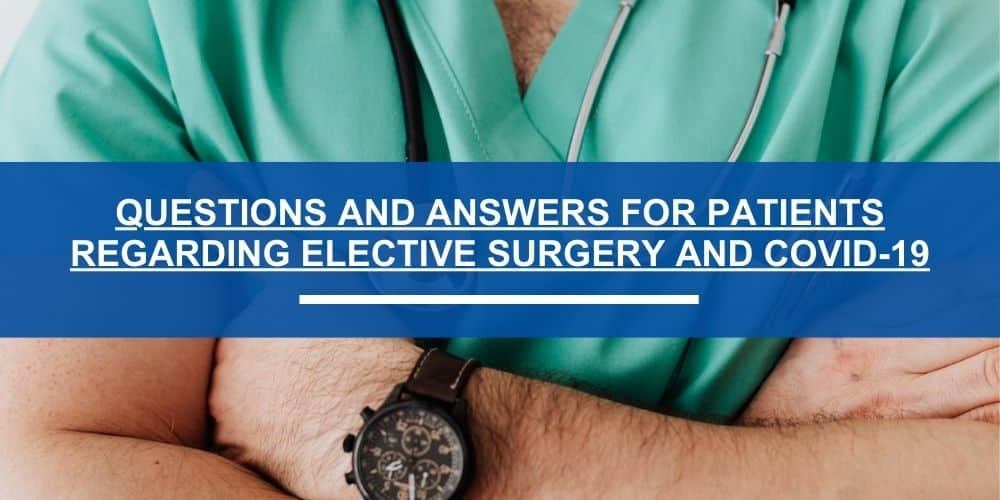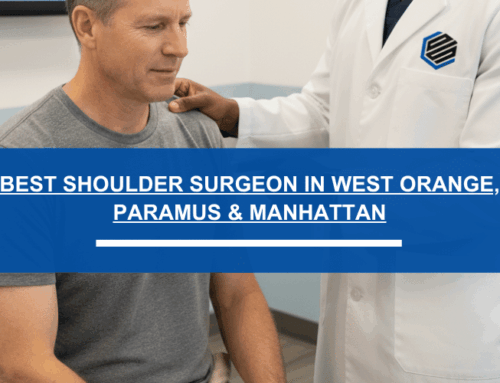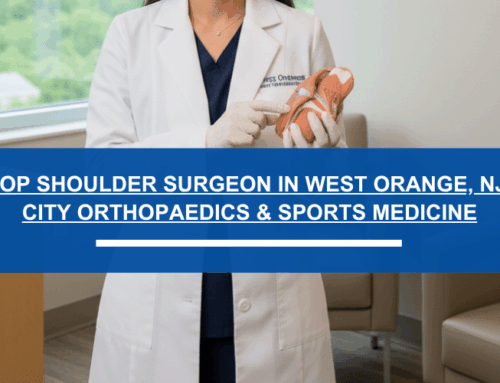Nonessential orthopaedic surgeries that were postponed due to the COVID-19 pandemic are now resuming. We have adopted this resource to help address questions and concerns patients may have about the impact of COVID-19 on their rescheduled procedures.
Is it safe to have my surgery?
Your safety as a patient is our primary concern.
Now that the number of acute COVID-19 cases has begun to decline and there is “flattening of the curve” in many places, we have started to resume elective orthopaedic procedures.
During the course of the COVID-19 pandemic, we continued to provide critical emergency surgical care to patients safely and effectively. Our experience with these patients has helped us to make your scheduled surgery as safe and successful as possible. Ensuring your safety as a patient is our primary concern.
What precautions are taken to make sure the facility is safe?
Our hospital or outpatient surgical facilities follow extensive sterilization and sanitization procedures in line with both government and industry recommendations. Our facilities have a high air flow and sanitization rate in the operating rooms, which helps to decrease potential disease transmission. In many cases, this may mean that the time between surgical procedures will be longer than normal and that fewer surgeries can be scheduled in an operating room during a single day.
We may also place limitations on whether visitors may come into the facility or may provide a designated waiting area away from the operating suite. Social distancing will be practiced in waiting areas.
If I am having surgery, will I require screening and/or testing?
Screening and/or testing of all patients having surgery will be required to make sure you have had no known exposure to COVID-19 and you have had no symptoms consistent with the disease. No test or screening in 100% accurate, so you may be screened or tested more than once to help safeguard you during your surgery.
What is the difference between screening and testing?
Screening means you are evaluated for symptoms and findings of COVID-19 disease. This takes the form of questions to make sure that you have no history of symptoms to indicate you are actively sick. You will be asked if you have had recent close contact with anyone known to have the disease. A physical examination, including a temperature check, will also be part of the screening process.
Testing means that you have a physical test to make sure that you are not sick with the virus. A sample is taken from your nasal passages or your saliva and sent to a laboratory to be tested.
When will screening and/or testing take place?
You will need to be evaluated several days before your surgery and again when you arrive at the surgical facility. This is to make sure that no changes have taken place since your first evaluation.
What happens if there is a problem with my preoperative evaluation?
If there is anything in your preoperative evaluation that suggests there might be a problem, your surgery will be postponed. This is for your own safety, as you would not want to have surgery if there were some chance that you might have COVID-19.
If you have mild symptoms, such as a sore throat or cough, these will need to be checked even if your virus test is negative. That way you will know it is safe to go forward with surgery.
Obviously, if there is a true emergency, then surgery will have to proceed even though the risks are greater.
If my surgery is postponed, how long do I have to wait to be rescheduled?
Your surgery can be rescheduled once you are symptom-free and your virus test is negative. If you have had COVID-19, you will need to be rechecked by your primary care physician to make sure you are medically cleared for surgery. Ensuring your safety is always our primary concern. Once you are medically cleared for surgery, we can help get you “back on the schedule” in a timely fashion.
If I am having surgery at a hospital, will I be in an area close to where patients have COVID-19?
We keep COVID-19 patients in separate areas that are being taken care of by a different group of hospital workers and nurses.
Can I bring a family member? Can they wait with me before and after my surgery?
Depending upon the facility, your friend or family member may be able to wait in a specially designated area or may only be able to drop you off and pick you up at the entrance to the facility. Some exceptions may be made if you are a parent bringing a pediatric patient for surgery.
What can I do at home before and after surgery to decrease my risk of contracting the virus?
It is important to take precautions against the spread of COVID-19 disease both before and after surgery. Avoid crowds, maintain social distancing, practice good hygiene, and try to avoid close contact with friends or family members who work in areas where they may be exposed to the virus.
What is the difference between viral and antibody testing?
A viral (antigen) test can be done to determine if you have active COVID-19 disease. This is done by inserting a long swab into your nasal passages or by obtaining a saliva specimen. If it is positive, you may need to seek further treatment and avoid contact with others to prevent the spread of the disease. Most viral tests are about 80-90% accurate.
An antibody test is done by drawing a blood specimen. It should be able to tell if you have had COVID-19 disease, but the accuracy of the currently available antibody tests is uncertain. If you have a negative test, it could be what is called a “false negative,” meaning that you have been exposed to the virus, but the test was inaccurate. On the other hand, if you have a positive test, it means that you have been exposed to the virus, but it does not mean you have immunity against getting the disease again. There is currently a great deal of research going on in this area and we hope to have an accurate antibody test very soon.
What happens to me if I develop symptoms of COVID- 19 after my surgery?
Even though you may have tested negative for COVID-19 before surgery, it is certainly possible to contract the virus afterward. If you are experiencing symptoms such as fever, headache, nausea, vomiting or shortness of breath, contact your physician and you will be given appropriate treatment.
Communicating With Our Office
If you have any questions or problems, please do not hesitate to contact our office.
Our priority is to safely provide care for all of our patients.
To make an appointment, please call our office at 201-500-9450 (New Jersey) or 212-433-2662 (New York). Our office will do all that we can to accommodate your orthopaedic needs and concerns.






